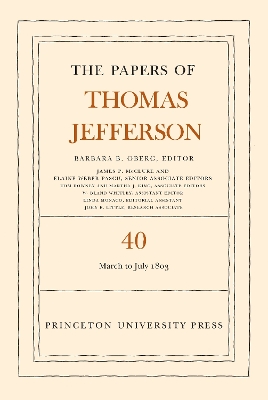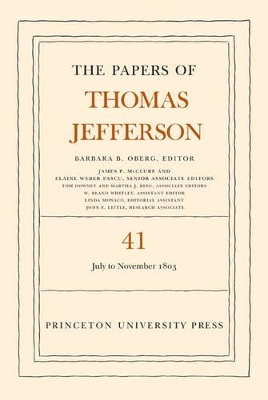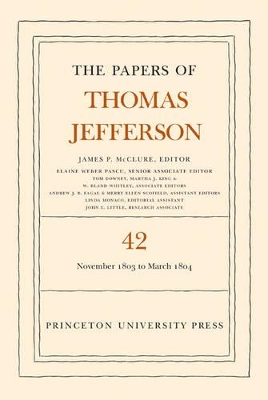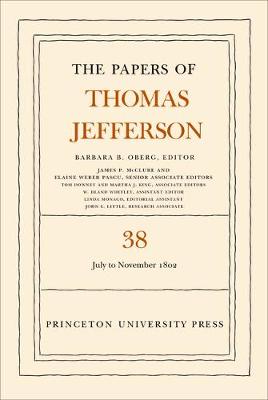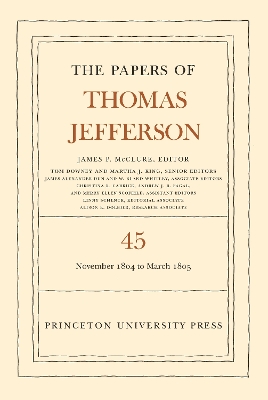Papers of Thomas Jefferson
43 primary works • 45 total works
Book 81
Following through on a promise to a friend to give his views of Christianity, Jefferson puts his religious creed on paper, a "Syllabus" of the morals of Jesus and the comparative merits of Christianity. He intends it only for a few trusted friends.
Book 82
Some Federalists criticize the plan, but an expansion of the nation's territory, proponents argue, will raise America's stature in the eyes of the world. With the widening of the country's borders, Jefferson's project to send an exploratory party westward seems even timelier. William Clark accepts Meriwether Lewis's invitation to join the expedition, and on the last day of August Lewis begins his journey down the Ohio River, the building of his boat finally complete.
Book 83
In detailed notes made after Aaron Burr calls on him in January, Jefferson records his long-standing distrust of the New Yorker. Less than a month later, a congressional caucus nominates Jefferson for a second term, with George Clinton to replace Burr as vice president. Jefferson makes his first trials of the "double penned writing box" called the polygraph.
Callender's accusations appear in the Richmond Recorder and make public his relationship with Sally Hemings. The president offers no comment, and a month later returns to Washington, where he continues planning for an impending visit by his daughters.
A definitive scholarly edition of the correspondence and papers of Thomas Jefferson
This volume opens soon after the start of the second session of the Eighth Congress and ends a few days after the session closes. During the period, Jefferson receives twice as many documents as he writes. He sits for portraits by Charles Févret de Saint-Mémin and Rembrandt Peale. The nation endures an extreme winter. William Dunbar begins to send information from the exploration of the Ouachita River. Acts of Congress create new territories and give Orleans Territory an assembly and a path to statehood. The Senate ratifies a treaty to acquire an estimated 50 million acres of land from the Sac and Fox tribes. Levi Lincoln resigns, Robert Smith asks to succeed him as attorney general, and Jefferson seeks a new secretary of the navy. Jefferson and vice-presidential candidate George Clinton receive 162 electoral ballots against 14 for their opponents, Charles Cotesworth Pinckney and Rufus King. Napoleon is crowned emperor of the French, and Spain declares war on Great Britain. The Senate acquits Samuel Chase of eight articles of impeachment. Jefferson prepares his inaugural address and is sworn into office for his second term on 4 March. He refuses to consider serving a third term.
